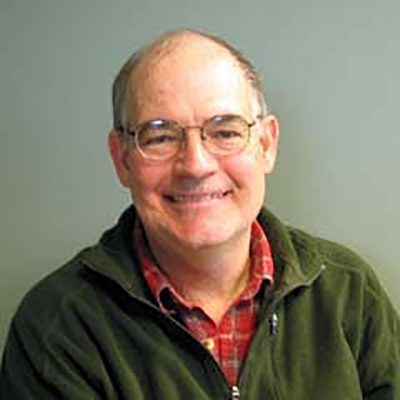
What is the best way to talk about climate change? How do we use video to present science in an engaging and inclusive way?
These are questions Alex Griswold, a research associate at the Harvard University Center for the Environment, plans to explore in his Tuesday lecture, “Talking About Climate Change Through Video,” as a part of the Seminar Series on Climate Change, organized by the Boston University College of Arts and Sciences.
Griswold has 30 years of experience with documentary and television production, which includes works such as television series “Minds of Our Own” and professional development courses such as “The Habitable Planet: A Systems Approach to Environmental Science.”
During his lecture, Griswold will apply his video production knowledge to the topic of climate change. He wrote in the description of the lecture that there “no one formula for talking about climate change using video,” so he will discuss different approaches and show examples in order to reach a more inclusive understanding of the topic.
“While the scientific facts are undisputed, in the public arena climate change has become extremely polarized and politicized when it doesn’t have to be,” he wrote.
Robert Kaufmann, a professor in BU’s Earth and Environment Department, said he agree with Griswold’s statement about how climate change is becoming polarized and politicized as a result of “strong financial interests on the side of retaining fossil fuels.”
Kaufmann, recalling how many groups argued against the health threats of smoking, said the issue of climate change reminds him of the smoking debate.
Therefore, Kaufmann said, the conversation around climate change will continue to be a heated debate until the general population recognizes the validity of the science behind climate change.
But it will take more than science to make that happen, Kaufmann said.
“I think a lot of scientists think, ‘Oh, I’ve written papers about this. That should be enough,’” he said. “But that’s not the case.”
Nathan Phillips, another professor in BU’s Earth and Environment Department, recognized Griswold’s idea of video visualization as a step in the right direction.
Phillips, currently researching gas leaks and their impact, said “visualization is key” in studying the causes of climate change.
Because carbon dioxide is not a visible gas, it’s a bit “out of sight, out of mind,” he said.
However, visualization also plays a large part in showing the impacts of climate change, Phillips said. He referenced a recent video animation created by NASA, which shows the steady decrease in Arctic sea ice from 1984 to 2016 that he called an “irrefutable evidence.”
“Anything that helps visualize the drivers of climate change or impacts of climate change I think is very important for the public at large,” Phillips said, commending the idea of using video for this topic.
Still, Kaufmann had questions that he is looking forward to asking Griswold at the lecture.
“Climate change is not central to most people’s existence,” he said. “So I guess my question to him would be: how do you get people to watch your videos?”
However, Jessica Silva, a sophomore in CAS studying environmental analysis, said she was optimistic about Griswold’s idea. Our society is becoming more centered around video and visuals, she said.
“I think that video is an interesting take on climate change awareness,” Silva wrote in a message to The Daily Free Press. “We’re more likely to see something in a video online than on the television or read it in the papers.”
Ultimately, Kaufmann said, the key to stopping climate change is convincing the public that it is real.
“The science is overwhelming,” he said. “The question is: how do you convince people the science is overwhelming?”
Alex Griswold’s lecture, “Talking About Climate Change Through Video,” will take place Tuesday, Dec. 6, in CAS 132 at 4 p.m.






















































































































